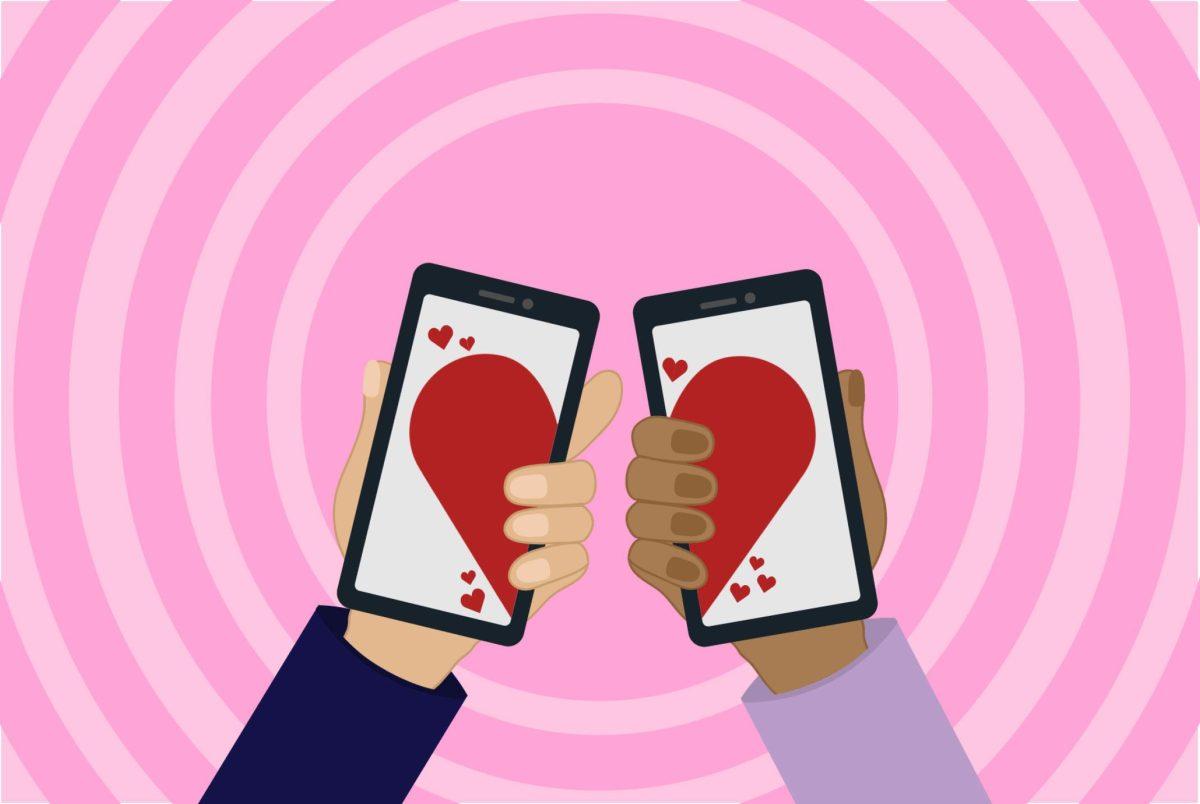As LSU freshman Maddi Boshra was grieving a messy breakup, she found solace in the popular dating app Hinge, where users can match with and respond to each others’ profile prompts.
Boshra swipes through potential partners while her dorm roommates, which she refers to as “the council” – watch over her shoulder and either approve or disapprove each profile.
Boshra found herself staying up hours at night talking to people on the app. She once stayed up four hours texting a girl she was clicking with.
“I’m so happy I had the experience of dating apps because it makes me see that I am capable of having a life without my ex,” Boshra said.
Boshra has a photo album on her phone of “wild” and “mind-blowing” accounts where she and her suite mates wonder what the person was thinking when they made their profile.
Forty-eight percent of adults aged 18 to 29 report they have used online dating platforms according to a 2020 study by the Pew Research Center.
Apps like Tinder, Bumble, and Hinge have only grown in popularity since the pandemic made meeting people more difficult.
Political science freshman Sydney Faulk uses all three of those apps. She says her overall experience is positive, especially since she’s found multiple relationships and friends from the apps.
She often swipes through the apps as her friends watch, and they predict whether she’ll match with each profile, which makes it feel like a “video game.” She also describes online dating as a “confidence booster,” and receives validation from those she matches with.
According to the Pew Research Center, young women are more likely to report negative interactions on online dating platforms. Six out of 10 female users aged 18 to 34 said in a survey that someone from a dating app continued to contact them after saying they weren’t interested.
Faulk went on to describe the stigma associated with each dating app, saying everyone on Tinder specifically has “red flags.”
“The bad thing about online dating is that you’re meeting them in the way they’re presenting themselves on their online profile,” Faulk said.
She often has strangers walk up to her in public and say they recognized her from her online dating profile, and she usually doesn’t know who these people are.
“Literally I could be walking around with my friends and a random guy will come up to me and talk about it,” Faulk said.
International business and Spanish sophomore Lizzie Allert is not currently on any dating apps but used to have Tinder and Hinge. She shared concerns about the transparency of online dating after being cat-fished by someone who used photo editing to appear more conventionally attractive.
“Not only are you just protecting yourself and your own personal safety, but you’ve got to protect your mind and your soul and everything,” Allert says.
Allert believes her main reason for downloading the apps was “vanity” after downloading them during a time of boredom. Flirting with others behind a phone adds an extra layer of dopamine, Allert says, because she doesn’t have to keep a front.
“I would recommend them [online dating apps] to other LSU students, especially with not all of our classes being in person quite yet,” Allert said.
In the same study, 11% of adults aged from 18 to 29 said dating apps are not at all safe, 27% said dating apps are not safe, 58% said dating apps are somewhat safe and 4% said dating apps are very safe.
While political science sophomore Parker Simpson has found several committed relationships from online dating, he believes there are also dangers when it comes to safety. He also uses the main three dating apps.
“Through dating apps, I’ve met some cool people, but there are a lot of weirdos out there,” Simpson said.
Hearing of sketchy stories from his friends’ online dating experiences, Parker says people need to be careful, even himself having experiences with “obsessive” people.
While he believes the close proximity of people his age is convenient for dating on a college campus, he also believes the concept of online dating is weird.
“I am rating another human based on how attractive I think they are,” Simpson said. “It’s like you are itemizing someone’s whole being based on their profile. It feels very unnatural.”
Mass communication freshman Liam Haley’s overall experience of online dating is good, and he continues to use the apps in hopes of finding a committed relationship. Though he recognizes the disparities between men and women.
“You hear stories all the time of people meeting up on dates and something terrible happening,” Haley said. “I feel like it’s worse for women definitely.”
Haley says online dating is not a “one-size-fits-all,” and can promote a “self-destructive” behavior when used in bad mental standing, believing one shouldn’t use the apps to “fuel an unhealthy habit.”
“Overall, dating apps are pretty good,” Haley said. “Just be careful and don’t change who you are for some random person you saw on your phone.”





